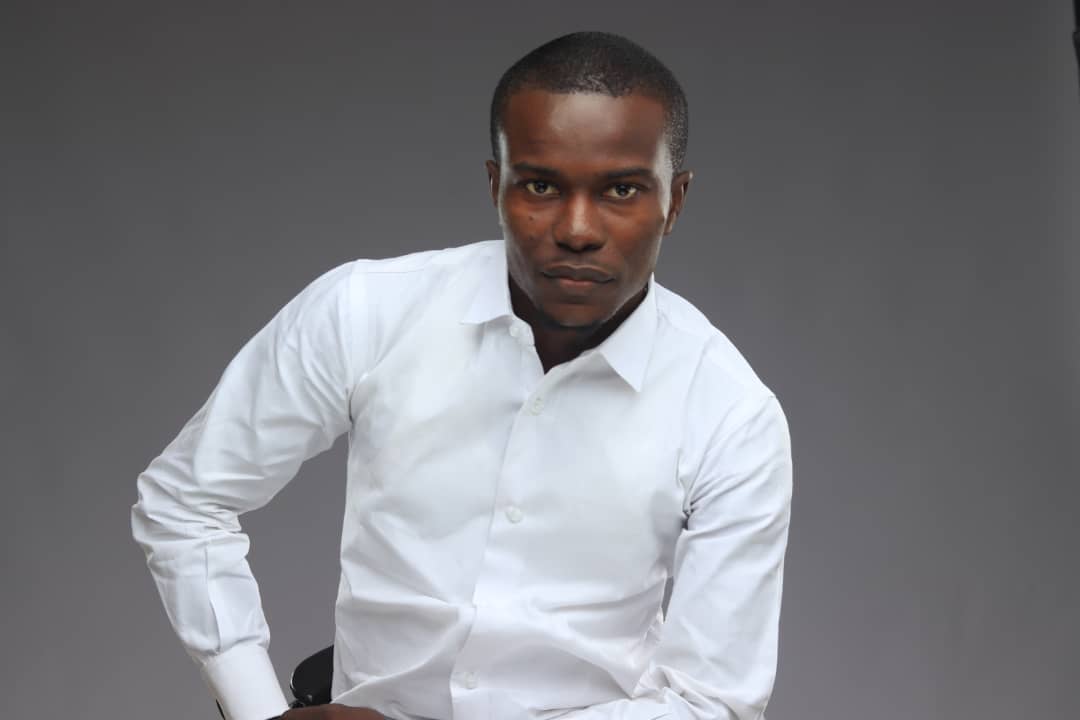
Theodore Roosevelt, in his famous speech titled “Citizens In A Republic”, said, “It is not the critic who counts; not the man who points out how the strong man stumbles, or where the doer of deeds could have done them better. The credit belongs to the man who is actually in the arena, whose face is marred by dust and sweat and blood; who strives valiantly; who errs, who comes short again and again, because there is no effort without error and shortcoming; but who does strive to do the deeds; who knows great enthusiasms, the great devotions; who spends himself in a worthy cause; who at the best knows, in the end, the triumph of high achievement, and who at the worst, if he fails, at least fails while daring greatly, so that his place shall never be with those cold and timid souls who neither knows victory nor defeat.”
Those words are as profound now as they were when originally rendered and are quite instructive as a creed not just for men but for everyone destined for greatness. Speaking of greatness, one person who achieved so much greatness that three of the world’s leading monotheistic faiths acknowledge him as a patriarch was Abraham. For many reasons, Abraham was a very consequential character because God used his life story to teach powerful lessons that generations after him would canonise. The idea that greatness is reserved for ‘perfect’ people is one of the narratives that Abraham’s life sufficiently demolishes. One episode in his story that stands out to me is when a demand is made on his faith, this act shaped not just who Abraham became but defined his legacy such that his name remains a cultural reference point to this day. As we celebrate Men this month, I thought it was poignant to do a sophomore commentary on such a great man.
Submission
The backstory is that at some point in Abraham’s life, he and his wife, Sarah couldn’t biologically have children – even after God had promised him a son. The pressure was so much on Abraham that he told God that he didn’t mind his chief steward, Eliezer, standing instead of a biological son and eventually inheriting his wealth. The pressure was so much on Sarah that she folded and asked her domestic help to become a surrogate mother by having a child with her husband – Ishmael. Eventually, after 25 years of waiting for Isaac would be born; unknown to both of them at the time, the world as we know it would never be the same again owing to the eternal contention between Isaac and Ishmael – it came as no surprise that recently people brought back the chief proponent who engineered the Abraham Accords which gave peace a fighting chance. Many years later, here comes God telling Abraham to sacrifice the very child that made him laugh. Abraham doesn’t throw tantrums, instead, he wakes up early the next morning and heads to the mountains as God instructed him.
Unfortunately, strength for men has been defined by society in a way that is not helpful. Many men think submission is a virtue exclusive to women when in reality, it starts with us. Submission is not a weakness, it is a strength under control – it takes a strong man to submit because he has the option not to do so. This is why it’s dangerous to marry a man who is not submitted to anybody; he won’t be a great leader because he has never learnt to be one by being led himself. Culturally, my people say, “Marry person wey dem fit draw him ear”. Colloquially, they also say, “Marry person wey dem fit use God beg”. “No gree for anybody” is just what we say on social media for banter but in real life, don’t partner with loose cannons for important engagements. You get the point.
Sensitivity
The instruction was for Abraham to head towards the place where Isaac would be offered up as a burnt offering “upon one of the mountains”. Three days later, Abraham “lifted up his eyes and saw the place afar off.” Notice God didn’t give him specifics? There was no travel advisory but thankfully for Abraham, his God Positioning System was active. I am all for clarity, I believe in light being the first order of creation and most likely I would choose direction over speed if given a hypothetical and binary choice. However, we see here that there is a level of clarity that is only unlocked when you take the initiative to move. A very successful and global beverage company started out making pharmaceutical products, the founder of one of the biggest furniture companies in Nigeria didn’t know she would ever be in such a position at the outset of her career, I didn’t know I would ultimately write for a living amongst my many other talents. Your miracles are in your moves; if you don’t go – you will never know.
Separation
After Abraham spotted the location, he knew that whilst the people who were with him meant well – they might sabotage his mission. They were passionate but not knowledgeable; they knew his operations but not his strategy. It would be hard to explain to virile young men that he was going to kill the son he had waited 25 years to have; whilst it made faith to Abraham – it wouldn’t make any sense to them. They would have rightly intervened to save their boss from himself. So he told them, “Stay here with the donkey. The boy and I are going over there to worship; then we’ll come back to you.” Notice that Abraham’s mission to the mountains of Moriah was classified and he skilfully excused them from his real intentions, not because they were necessarily bad people but because he knew they couldn’t handle it if he told them. Remember Abraham trained his stewards, so he knew what each of them could do. That’s why you have friends you catch cruise with but won’t do business together because one of the things you will find out in the making of greatness is that you routinely have to make executive decisions; no hard feelings. You ultimately have to be loyal to your future more than you are to your friends. In life, the higher you go – the smaller your inner circle becomes and inevitably there will be people you have to let go.
Settings
Abraham didn’t just waltz towards the mountains of Moriah, he went prepared for the sacrifice – he took wood, fire and a knife. He brought what was within his reach, did what he could do and left what he couldn’t do to God. Every huge vision has a small starting point and it will always begin with what you already have; the shift is always from the known to the unknown. Abraham didn’t outsource all his responsibilities to God, he played his part. Prayers are great but we must also plan for the blessings we are expecting – hope is not a strategy. However, what really caught my eyes was this phrase: “Abraham took the wood of the burnt offering, and laid it upon Isaac his son”. Reading this from Moses’ narration doesn’t register as anything significant but once you read the Pauline Epistles which I refer to as the declassified documents, everything in this story starts to look very familiar. Isaac carrying the wood suddenly clocks as a shadow of Jesus carrying his cross and heading to Golgotha. It’s interesting to see that the wood is placed on Isaac but the fire and knife are in the hand of his father. Now I get why Jesus would say while on the cross, “My God, my God, why have you forsaken me?”
Sacrifice
It’s main event time. Isaac is a smart lad, he saw the settings – the wood, the knife and the fire but no animal in sight for the sacrifice. When he asked his father about it, Abraham responded, “God will provide himself a lamb for a burnt offering”. Before we talk about the sacrifice of Abraham, we need to highlight the submission of Isaac. At some point, he figured that he was the sacrifice and even though he was physically strong enough to escape, he submitted to the will of his father. As far as Abraham was concerned, in his heart he had already sacrificed his only son, Isaac – everything else was just formality. Similarly, God gave his only begotten son, Jesus, to die. Greatness never happens without sacrifice, it will cost you something to achieve your dreams – if it was easy, everybody would do it. Sacrifice is your way of showing how badly you want something. Even when you are given something for free; it comes at a cost to somebody else. Today people mouth off on “The God of Abraham, Isaac and Jacob” and how Abraham is the “Father of Faith” but behind these titles was a great test – the willingness to sacrifice what he loved.
Switch
Just as Abraham got to the point of taking his son’s life, God asked him to keep his hand. This is a seminal point because if he hadn’t heard from God, he would have needlessly ended his son’s life. Religion is when a person operates on what God said, revelation is when a person operates on what God is saying. Many men have needlessly killed relationships, businesses and ideas that should have still been sustained today because they didn’t know how to switch. Switching means you have to pivot, unlearn and change your mind about certain things. Switching also means employing emotional intelligence such that you respond more appropriately to situations. Diplomacy could be the answer than a tit-for-tat approach; taking the high road instead of feisty confrontations and forgiving instead of peddling hate. Switch also means innovation; which is not just doing new things but could also mean doing the same things in novel ways. It all comes down to the word, repent: an ability to change your mind, especially in the light of new or superior information.
Substitute
It was never about Isaac, he was just the opening act for the real deal. When Abraham told his son that God himself would provide a sacrifice, he may not have been fully aware that he was prophesying what would eventually play out – not just in the immediate aftermath but two millennia later. Abraham is shown a ram whose head was caught in the thicket and offered “him” up for a burnt offering in the stead of his son. Thankfully, in hindsight, we know who this animal foreshadows – a messiah whose head was also caught up or crowned with thorns. Moses and the rest of the prophets saw this animal literally. However, Jesus praised John for recognizing him as “the Lamb that takes away the sin of the world”. This is why Jesus would say stuff like, “Abraham saw my day and he was glad”. No thanks to religion, most of it flew over their heads, even Jesus himself acknowledged this by saying he had many things to say which they just couldn’t grasp. That’s why one of the reasons Paul of Tarsus entered the chat with his declassified documents. Paul states in explicit terms in his letter to the Galatians that the promise of God was ultimately to Abraham and his descendants (Christ), not descendants. Isaac was just the scaffolding; Jesus is HIM.
Abraham’s flaws were well-documented, yet the most powerful testimony about his life was that “he believed God and it was counted to him as righteousness”. As a man, greatness from God’s perspective isn’t necessarily defined by what you do; whilst that is great – it’s really about what you believe.
The post Mfonobong Inyang: Abraham’s Archetype of Greatness – The Man In The Arena appeared first on BellaNaija - Showcasing Africa to the world. Read today!.









 English (US) ·
English (US) ·